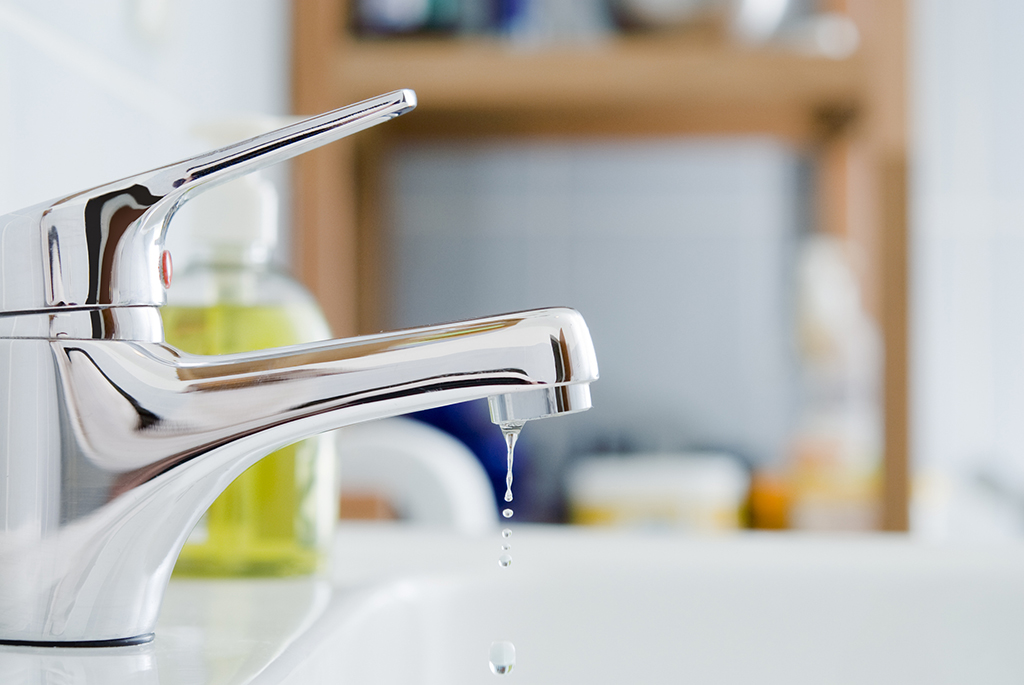
Five of the Most Common Plumbing Problems and When It’s Time to Call a Plumber | Spring Branch, TX
Photo By nicolas at istock
Plumbing systems contain pipes, faucets, drains and other components that can break at any time, even if you perform preventive maintenance and avoid habits that can cause plumbing problems. If you experience any of these issues, call a Spring Branch, TX plumber immediately to limit the damage and get your plumbing system up and running as soon as possible.
1. Clogged Drains
A clogged drain has several potential causes depending on its location and how the drain is used. Clogged drains in a kitchen are often due to an accumulation of fat or grease. Clogs can also form if you let food scraps go down the drain instead of scooping them out of the sink when you’re doing dishes. In showers and bathtubs, hair is one of the most common causes of drain clogs. Surprisingly, soap is another common culprit. Soap itself usually breaks down when exposed to water, but if it gets caught in a clump of hair, it’s likely to block the drain. Finally, toys, keys and other objects can cause clogs if they accidentally fall into a sink or bathtub.
You can prevent clogs by taking the following steps:
- Scrape dishes thoroughly before placing them into the sink to prevent food scraps from going down the drain.
- Supervise small children when they’re playing with toys in the bathtub.
- Add a drain cover to the drain in your shower or bathtub. A cover catches hair before it goes down the drain, preventing clogs.
- Use liquid soap instead of bar soap if possible.
If your drain develops a clog despite your best efforts, call a Spring Branch, TX plumber right away. Don’t try to solve the problem on your own, or you could make it worse, making it even more expensive to fix later on.
2. Low Water Pressure
Low water pressure has four main causes, some of which you can control and one of which you can’t. One of the factors you can’t control is problems with lines owned by the local water company. These lines can develop leaks and other problems, reducing the water pressure in nearby homes. If this happens, call your local water authority to report the problem.
The causes you can control include leaky pipes in your home, mineral buildup inside your pipes and pipe corrosion. When one of your pipes is leaking, less water flows out of the faucet, causing you to experience low water pressure. If you recently had a water main break, your water may have minerals, sand or other debris in it. This buildup can cause blockages within the pipes, reducing water pressure in the system. Galvanized pipes and steel pipes are susceptible to corrosion, which typically happens in older plumbing systems. If your pipes are corroded, have a Spring Branch, TX plumber replace them.
3. Leaky Faucets
Not only is the sound of constant dripping annoying, but a leaky faucet can waste hundreds of gallons of water per week, increasing your water bill significantly. Worn-out washers and other fittings are a common cause of leaks. A leak may also occur if minerals corrode the inside of the faucet and cause tiny holes to form. If your faucet was installed incorrectly, or if any of the parts are loose, the risk of a leak increases. To ensure the leaky faucet is fixed correctly, be sure to call a plumber. An experienced plumber can assess the leak, determine a cost-effective solution and do the repair quickly.
4. Sewer Backups
Clogged pipes and blockages caused by tree roots are two of the most common causes of sewer backups. Clogs can form in your sewer line when someone in your household puts paper towels, baby wipes or other non-flushable items down the toilet. Hair and grease can also cause clogs, causing sewage to back up into your basement and causing a real mess. You can prevent clogged pipes by putting a drain cover in your tub or shower, pouring used cooking oil into the garbage instead of putting it down your sink and never flushing anything other than toilet paper down the toilet.
Tree roots can cause serious sewer problems, especially if your sewer line has small cracks in it. Over time, tree roots can penetrate these cracks, completely blocking the sewer line and causing waste to back up in your home. You don’t have to have a tree growing right by a sewer line for this to happen, either, as a tree’s roots can spread as far as 20 feet away from its trunk. You can reduce your risk of a sewer backup by planting trees as far away from sewer lines as possible, planting shrubs and plants with shallow roots that don’t spread too far and having a landscaper remove or relocate any trees that are threatening to damage your sewer system. If these preventive measures don’t help, call a plumber as soon as you notice signs of a problem.
5. Leaky Pipes
Clogs, corrosion and high water pressure are among the most common causes of leaky pipes. Once a clog forms, it causes water to back up within the pipe, increasing water pressure within the system. If you have hard water, the minerals may be scraping the inside of your pipes, causing them to corrode more quickly than expected. Corrosion may also occur if you frequently use chemical drain cleaners. High water pressure is usually thought of as a good thing, but if it’s too high, it can cause your pipes to rupture. It can also cause leaks, leaving you in need of help from a qualified plumber.
If you live in Spring Branch, TX or the surrounding area and need help with a plumbing problem, call bluefrog Plumbing + Drain of West Houston. Our knowledgeable and professional plumbers are ready to help.





;)


